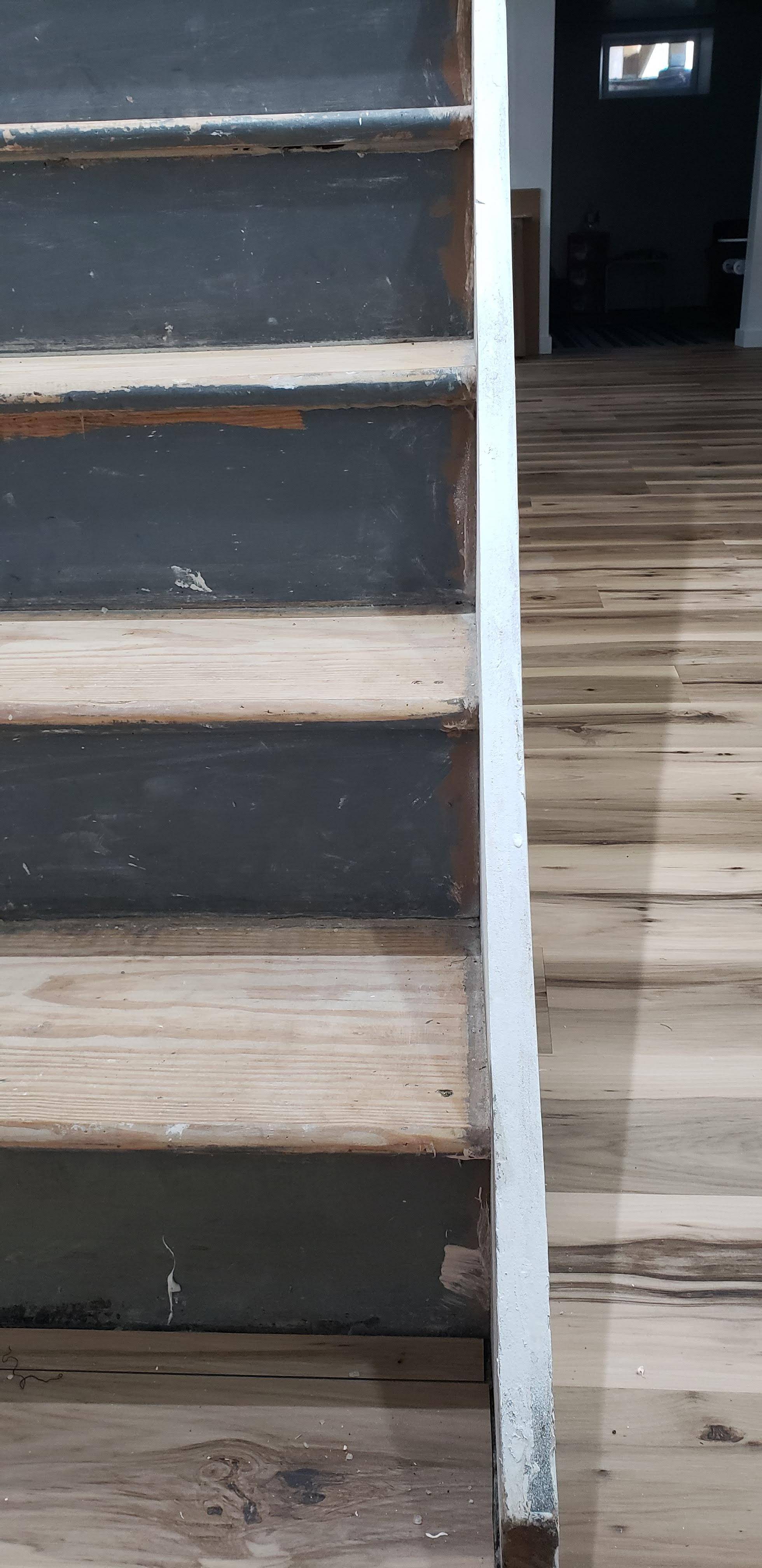Hopefully a quick question for someone. I have a closed stair stringer that used to be embedded in a non load bearing wall that has been removed leaving only the ~1 1/2" stair stringer remaining. I want to put a handrail on it with balusters etc. Is there a minimum width for the shoe rail? In order to extend the stringer width to accommodate the shoe rail I was going to attach a long piece of 2x10 to the side of the stringer to give the extra width. Is there a better way to do this?
-
It requires a “handrail” AND a “guardrail”. The handrail must be mounted between 30” and 38” and can be on one side of the stairway only. The guardrail shall be mounted a minimum of 42” high.– Lee SamCommented Feb 24, 2021 at 21:41
-
Hi, thanks for the response but not really what i was asking. I know it needs rail and guard but im asking about mounting the guard/balusters to the stringer– RossMcCCommented Feb 24, 2021 at 22:22
-
2There's no minimum thickness as long as you use suitable fasteners. The only issue is how rigidly the stringer is attached to the treads and risers. Does it flex sideways at all? How much bounce is there in the stairs?– isherwoodCommented Feb 24, 2021 at 22:34
-
Seems pretty stable. No flex or wobble and I reinforced under the stairs when I had access so its pretty rigid. I think I'd like the extra width just to give the shoe rail more stability but not sure if I just slap one long piece of wood to stringer side or do a wall frame style with 2 x 3s or 4s boxed out. Probably less weight on the stringer framed?– RossMcCCommented Feb 24, 2021 at 22:40
Add a comment
|
1 Answer
Typical Balusters will tend to make the stringer rotate when a force is applied perpendicular to the stairway. (Code requires a resistance of 200 lbs. applied at the top of the guardrail and perpendicular to the guardrail.) I’d try installing several newel posts along the stairway. They could extend from the floor up to the guardrail height so they won’t rotate.

